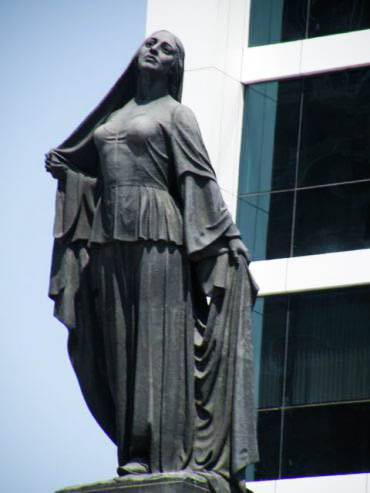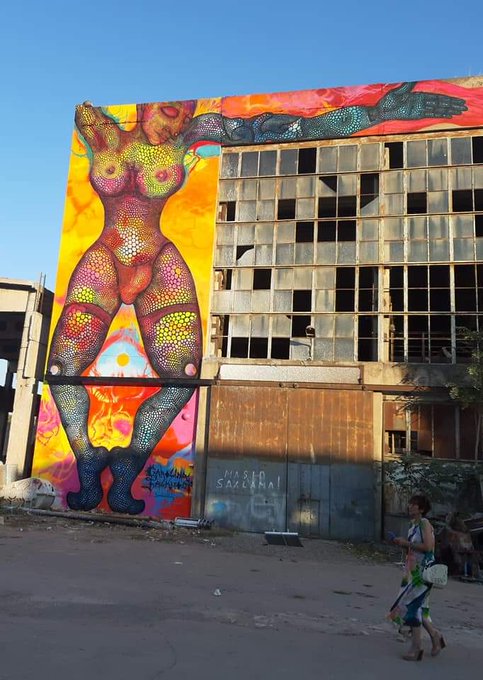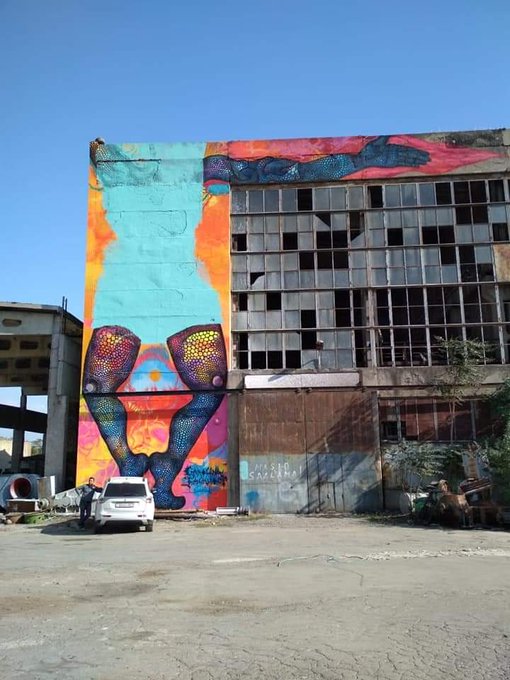A Transgender-themed Street Mural Has Provoked a Backlash in Baku(Azerbaijanis Got Heart Palpitations)

A mural in Baku which fell foul of the country's “national values and mentality,”
2019. Photo by Turxan Qarishga / Hamam Times. Used with permission.
It was just a contemporary art festival.
From September 17 to 27, fans of art, film, and poetry were invited to take part in “Maiden Tower. To Be a Woman,” a festival organized by the European Union's Delegation to Azerbaijan and several diplomatic missions. The festival, named after a famous landmark in Baku, was to celebrate the 100th anniversary of the liberation of Azerbaijani women. The initiative was launched and curated by the artist Sabina Shikhlinskaya, who founded a contemporary art forum of the same name in 2009.
One of the festival's events was an exhibition of murals and graffiti held at Kombinat, a derelict workshop in the Azerbaijani capital once used by the artists’ union during the Soviet period. The organizers hoped that the works would remain there after the festival.
But something quite different happened. One mural by Swedish artist Carolina Falkholt, depicting the body of a transgender person, drew so much attention that it was painted over once the festival ended — in a not so artistically friendly way.
In fact, it has provoked a backlash, a discussion about the public visibility of sexuality, and even a government response in defense of the country's “traditional mentality.”
In an interview with 1news.az, a local government-affiliated news agency, Shikhlinskaya said she fought hard to preserve the mural, but was unsuccessful. “The wall where the artist painted her mural was facing a residential complex, residents of which complained to the police. After a series of complaints from people appalled by the drawing, it was decided to partially paint over Falkholt's work,” explained Shikhlinskaya, adding that, as this was a public artwork, one could not ignore the opinion of residents.
Falkholt's other works are as explicit as the one featured in Baku. The Swedish artist challenges conventional gender stereotypes and portrayals of the female body. In traditionally-minded Azerbaijan, where women's rights are still in their infancy, this did not go down well:
I am curious, why no one has dismantled the statue of a liberated woman?
Guys, you can't get there so quickly. They should have started from small graffiti.
allahıvız olsun, tarqovide neynirsiz eliyin, üçün kruqunda divara daşşaq çekmey olar? twitter.com/cavidaga/statu…
See Elnur Героинoğlu's other Tweets
Have mercy, do whatever you want on Torgovaya [main pedestrian street in Baku] but how can you draw balls on the roundabout of 3rd microdistrict [the name of the neighborhood where exhibition was held]
First, the figure's chest was painted over, and other “offending” parts were gradually covered up. Photos of the area on social media indicate that the mural had been completely covered up by 28 September, most likely by the local authorities.
On September 29, the Baku Mayoral Office issued a statement lamenting the crude attempt to paint over the mural, but conceding that it had offended residents and Azerbaijan's “national mentality.”






Comments